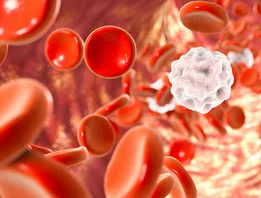


precision medicine
Exploring New Horizons
in Viral Myocarditis:
The TRIM29-PERK Pathway
Exploring New Pathways in Viral Myocarditis
Viral myocarditis is an inflammatory disease of the cardiac muscle that can cause arrhythmias and reduce the heart’s ability to pump effectively. This viral infection-induced cardiac disease is a leading cause of death in young adults. There are no effective therapies for myocarditis since the exact physiological mechanisms driving the disease have remained elusive… until now.
The COVID-19 pandemic reignited interest in studying myocarditis and related cardiac issues when the SARS-CoV-2 virus was found to be a trigger. This connection immediately caught the attention of Junji Xing, PhD, Assistant Research Professor of Immunology in Surgery at Houston Methodist.
“Viral myocarditis, sitting at the intersection of virology, immunology and cardiology, presents complex challenges that require an inventive approach,” said Xing. “With my background in virology, myocarditis and innate immunity, I'm acutely interested in uncovering the pathogenic mechanisms of viral myocarditis from an innate immunity perspective. Exploring the molecular mechanisms behind viral replication, immune responses and myocardial damage offers exciting opportunities for innovative research and novel therapeutic interventions.”

Junji Xing, PhD
Xing and his research team began investigating how they can help to develop effective viral myocarditis treatment by revealing the molecular pathways involved in this disease, particularly the role of TRIM29 in modulating the immune response against cardiotropic viruses.
“We began by exploring the current understanding of viral myocarditis, its prevalence and impact on health. Our curiosity was piqued by the potential role of TRIM29, a protein known for its role in various cellular processes but not clearly understood in the context of myocarditis,” noted Xing. “We were especially interested in how TRIM29 influenced the protein kinase RNA-like endoplasmic reticulum kinase (PERK)-mediated endoplasmic reticulum (ER) stress response—a pathway known to impact cellular survival and stress reactions.”
Xing and his team discovered that cardiotropic viruses highly induced TRIM29 and promoted PERK-mediated ER stress, apoptosis and reactive oxygen species responses that promote viral replication in cardiomyocytes in vitro.
The researchers took a multifaceted approach, employing cardiomyocyte-specific TRIM29 knockout mice and pharmacological studies to dissect the complex relationship between TRIM29, PERK signaling and the immune response in myocarditis. This included gene editing, immunoprecipitation and various molecular biology assays.
TRIM29 deletion or PERK inhibition with GSK2656157 protected mice from viral myocarditis by disrupting the TRIM29-PERK connection, thereby bolstering cardiac function, enhancing cardiac antiviral responses and curbing inflammation and immunosuppressive monocytic myeloid-derived suppressor cells in vivo. Discovering the interaction between TRIM29 and PERK, and the role of PERK-mediated ER stress response in promoting viral replication and myocardial damage, provides valuable insights into the pathogenesis of viral myocarditis. These findings were published in Nature Communications.
“We were pleased to learn that TRIM29 deficiency and pharmacological targeting of the TRIM29-PERK axis had a significant protective effect against viral myocarditis, reducing viral replication and symptoms,” Xing said. “Our findings make PERK inhibitor a promising drug to move forward to clinical trials for treating patients with viral myocarditis.”
Viral myocarditis, sitting at the intersection of virology, immunology and cardiology, presents complex challenges that require an inventive approach. With my background in virology, myocarditis and innate immunity, I'm acutely interested in uncovering the pathogenic mechanisms of viral myocarditis from an innate immunity perspective. Exploring the molecular mechanisms behind viral replication, immune responses and myocardial damage offers exciting opportunities for novel therapeutic interventions.”
Junji Xing, PhD
Assistant Professor of Immunology in Surgery
The study's insights into the mechanisms underlying viral myocarditis, especially regarding PERK-mediated ER stress response and apoptosis, pave the way for further investigations. Researchers can now explore additional molecular pathways involved in the disease’s progression and better understand how viral infections interact with the body's immune responses.
The research team’s next step is to prepare a PERK inhibitor for clinical trials and screen more effective drugs targeting the TRIM29-PERK axis for therapeutic treatment. Xing plans to collaborate with pharmaceutical companies to refine and optimize drugs targeting TRIM29, PERK, or related pathways identified in viral myocarditis. These collaborations are vital for translating promising preclinical findings into safe and effective treatments for patients.
In WT cardiomyocytes after infection with cardiotropic viruses (CVB3), TRIM29 is strongly induced by cardiotropic viruses and interacts with PERK and induces its SUMO1-mediated SUMOylation for maintaining stability of PERK, thereby promoting ROS-mediated TBK1 oxidization to reduce TBK1-mediated type I IFN production and enhancing PERK ER stress-mediated apoptosis, proinflammatory cytokines, and immunosuppressive mMDSC, which act in combination to cause pathogenesis of viral myocarditis. In contrast, in TRIM29 KO cardiomyocytes or WT cardiomyocytes with GSK2656157 treatment, PERK could not maintain its stability without TRIM29 or with GSK2656157 treatment post infection of cardiotropic viruses, and loss its strong ability to promote ER stress and ROS responses, resulting in enhanced type I IFN and reduced apoptosis, proinflammatory cytokines and immunosuppressive mMDSC, which significantly reduce viral myocarditis.
By integrating various data sources, including genomic, proteomic and clinical data, Xing will identify distinct patient subgroups based on molecular signatures.
“This personalized approach allows for tailored treatment strategies, ensuring that each patient receives the most effective therapy for their specific condition,” he emphasized. “By leveraging precision medicine, clinicians can optimize patient outcomes and minimize adverse effects, ushering in a new era of individualized care for viral myocarditis patients.”
Share this story
Journal Citation:
Junying Wang, Wenting Lu, Jerry Zhang, Yong Du, Mingli Fang, Ao Zhang, Gabriel Sungcad, Samantha Chon, Junji Xing. Loss of TRIM29 mitigates viral myocarditis by attenuating PERK-driven ER stress response in male mice. Nature Communications. 2024 Apr 25; 15(1):3481. doi: 10.1038/s41467-024-44745-x.
This work was supported by the American Heart Association Career Development Award 20CDA35260116 and Transformational Project Award 23TPA1055437 (https://doi.org/10.58275/AHA.23TPA1055437.pc.gr.172259) (J.X.).
July 2024
Donna Ostermayer, PhD
Related Articles







